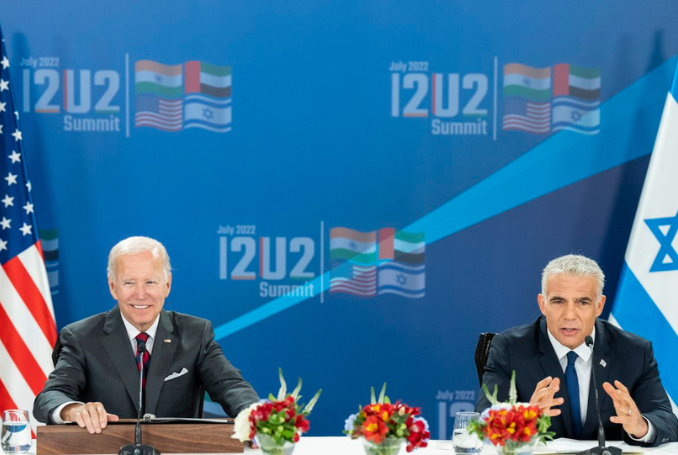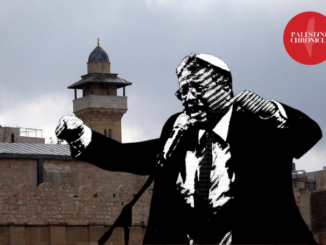
By Benay Blend
On September 1, 2022, President Joe Biden delivered a speech from Independence Hall in Philadelphia, a location that holds symbolic meaning for most Americans. It is where both the Declaration of Independence was signed and where later the framers wrote the Constitution. Biden’s message was labeled appropriately “the battle for the soul of America.”
In his preview of the speech, economist Robert Reich predicted that Biden would deliver an important message about the future of democracy in America. Indeed, there is a clear and present danger from the fascist right, not just in America but around the world. People who believe that Trump’s following is not a serious threat most likely are not feeling directly targeted by their actions.
As Reich points out, Republicans are “effectively outsourcing” paramilitary activities to groups such as the Proud Boys, Oath Keepers and others who threaten violence. In addition to an increasingly fascist wing of the Republican party, Reich calls out growing amounts of corporate and billionaire funding of campaigns and elections, and he says that these two threats are “two sides of the same coin.”
Indeed, both rising right-wing movements, as well as corporate control of elections, are linked: fascism is defined as corporate control of the government. Nevertheless, very few commentators put this problem into a sociopolitical context.
“The essential political choice in America,” warns Reich, “is no longer Democrat or Republican, left or right, liberal or conservative.” Instead, he sees the modern split as between democracy and authoritative fascism. In this way, Reich, like many others, ignores the fact that on some important issues there is very little difference between the parties.
Journalist Jon Jeter appears as an exception. In “Recession By Any Other Name Hits Blacks the Hardest,” he cuts through the Democrat’s refusal to name the dire straits that are affecting many middle-class Americans, but as he points out Blacks are in the most desperate shape of all.
“Since the 1970s, American society has lived with the curse of neoliberalism,” Henry Giroux explains, “or what can be called the latest and most extreme stage of predatory capitalism.” Giroux traces the roots of fascism back to President George W. Bush’s war on terror, picked up by President Barack Obama, who did little to correct state sanctioned torture, domestic spying, secret prisons, kill lists, laws sanctioning indefinite detention, and warrantless searches and war crimes.
Trump exasperated the problem, but Biden seeks “nothing less than global supremacy,” writes Dan Cohen, “escalating a new and even more dangerous arms race that risks the destruction of humanity.”
Jeter calls out the economic disaster that is presently destroying many segments of America, Giroux traces the roots of home-grown fascism, while Cohen proclaims the truth about Biden’s foreign policy. What is missing here are the fascist allies that Biden has endorsed—right-wing movements in South America and Eastern Europe, but perhaps most importantly Israel.
“I ran for president because I believed we were in a battle of the soul of this nation,” Biden said on Thursday night, a message that he has repeated as far back as during the campaign. Speaking on the relationship between Israel and the United States, Biden claimed that it went beyond security and weapons assistance. “It’s about the shared soul that unites our countries, generation upon generation”—a statement that should have been recalled, but wasn’t, when Biden spoke much later about his battle for America’s soul.
Calling out rising fascism in this country is important, but when put into the context of America’s relationship with Israel, Biden’s message falls apart. There are many indicators of Israeli fascism—apartheid, indefinite detention of Palestinians without benefit of trial, ethnic cleansing, and most recently forcing non-Palestinians to register with the Israeli government after entering into a relationship with a Palestinian.
One example among many, important to me because we became friends when he spoke here several years ago, is the case of Iyad Burnat. A leader of the Popular Committee Against the Wall in Bil’in, Burnat is the brother of Imad Burnat, who, in 2012, was the first Palestinian director to be nominated for an Oscar for his film Five Broken Cameras, which is about the struggle of the Bil’in villagers against the Israeli military occupation.
Several days ago, the Israeli military forced their way into his home to arrest his son, Abdul Khaliq, who was just released from prison a few days ago. In addition, they ransacked the contents of his house, an attack that they have repeated many times in the past. Iyad’s other son, Mohammed Burnat, has been imprisoned for 16 months without a trial, and will be there longer because his court hearing was recently postponed until October.
While particularly horrific because its personal, the Burnats’ situation is not an isolated case. As reported by Samidoun – the Palestinian Prisoner Solidarity Network – administrative detainees, those indefinitely jailed in Zionist prisons without charge or trial, recently issued a statement “urging greater solidarity, action and mobilization to stand with Palestinian prisoners inside the occupation prisons, particularly to bring an end to detention without charge or trial, particularly Khalil Awawdeh, on his 170th day of hunger strike for liberation.”
On August 31, 2022, Awawdeh ended his 182-day hunger strike after hearing of his upcoming release on October 2, 2022. “This victory is an extension of the victories achieved by the great Palestinian people,” Awawdeh declared in a video, where he confirmed he will remain in Assaf Harofeh hospital until his health recovers enough to walk.
In reality, there are the “fundamental values” that Biden said will always link the United States and Israel. In his words, those values are “global security, prosperity, and freedom, not just for us but for many around the world.” Judging by these few examples of indefinite detention for those who are part of the resistance to Israel’s occupation, such terms enumerated by Biden make very little sense.
It makes more sense to look at the reality of those shared values. According to the Center for Constitutional Rights (CCR), since 2001, when Present Bush declared the alleged War On Terror, 780 Muslim men and boys have been imprisoned at Guantánamo, a U.S. military detention camp located on the coast of Cuba. As of January 2022, 39 men remained incarcerated, 37 of which have never been charged. All have undergone torture by the U.S., including 26 who survived the CIA torture program.
According to the CCR website, statistics do not “convey the human toll of this monstrous experiment in cruelty, a manifestation of the deadly ideology of white supremacy and the politics of domination and impunity,” all of which is very much like indefinite detention in Israel. So far, the Biden administration has made no move to close the prison down.
Elaborating on “Teaching Palestine: Pedagogical Praxis and the Indivisibility of Justice,” Prof. Rabab Ibrahim Abdulhadi explains that “Teaching Palestine” 2022 “follows our praxis of commemorating major anniversaries in Palestinian history, highlighting intensified Israeli campaigns against Palestine, the Palestinian resistance movement and its Arab, Third World, and internationalist allies.” At the core of her curriculum is what Palestine “came to symbolize: a signifier of resistance and the indivisibility of justice.”
When Biden speaks again about his battle for the soul of America, remember that soul shares the same values as Israel. However much he should be praised for calling out the increasing danger of fascism in America, its only half the picture if there is no backstory of how it came to be.
It’s also important to recall that when he declares a battle for the soul of America, he includes Israel, a fascist state, as an ally. If white nationalism is a global movement, not just in the United States, then the struggle for justice must include all anti-fascist movements, not just those at home.

– Benay Blend earned her doctorate in American Studies from the University of New Mexico. Her scholarly works include Douglas Vakoch and Sam Mickey, Eds. (2017), “’Neither Homeland Nor Exile are Words’: ‘Situated Knowledge’ in the Works of Palestinian and Native American Writers”. She contributed this article to The Palestine Chronicle.







